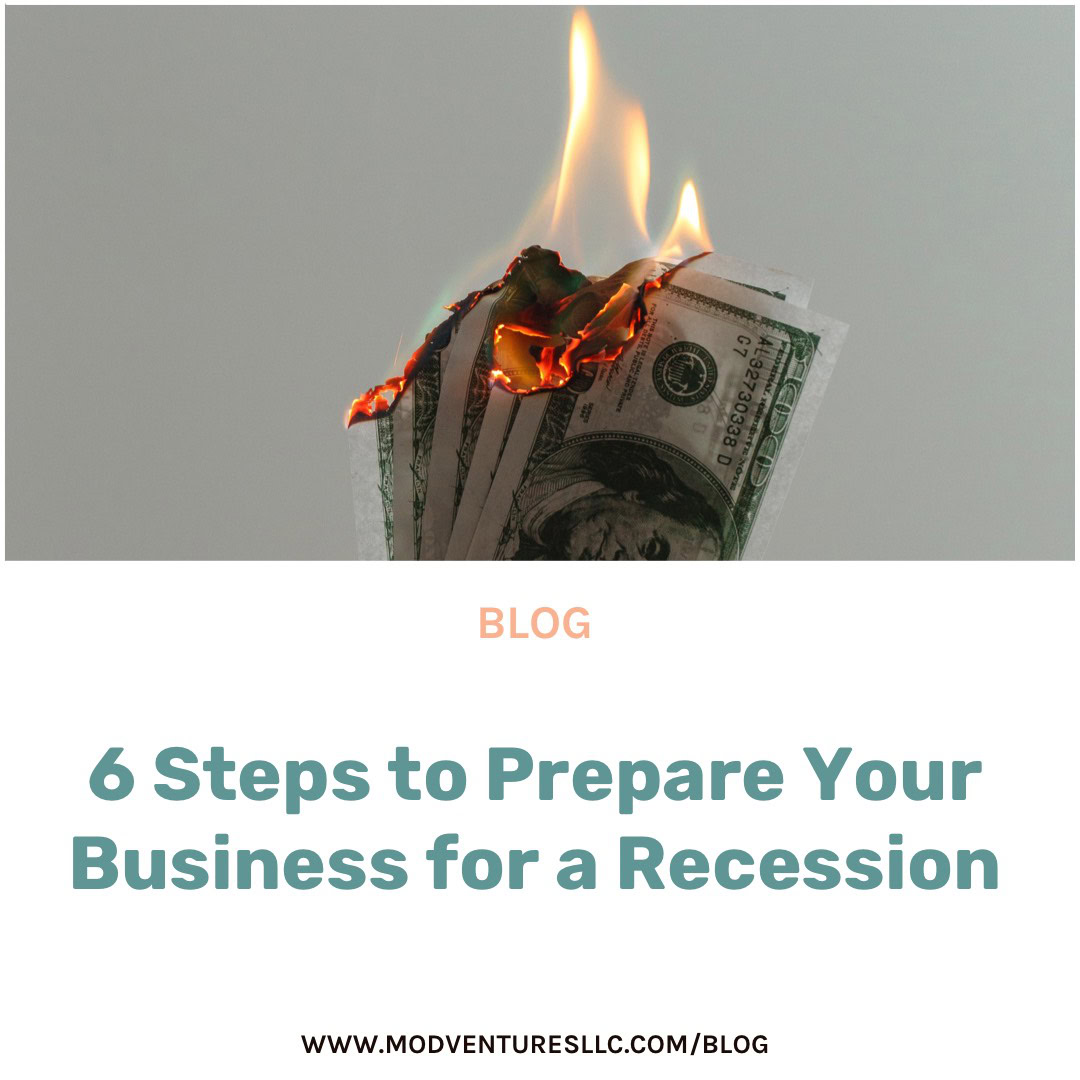By: Gabrielle Luoma CPA, CGMA
By: Gabrielle Luoma CPA, CGMA
The thought of a recession can be nerve-wracking for most small business owners. Whether your revenue is 100k/yr or 5M/yr, preparing your business for the possibility of a recession – in addition to periods of slow cash flow in general – is key to business success and survival.
A recession is defined as aperiod of temporary economic decline during which trade and industrial activity are reduced, generally identified by a fall in GDP in two successive quarters [Oxford Languages]. Recessions are not new to the American economy with the first recession recorded in1893 and the latest in early 2020.
To prevent your business from collapsing during an economic decline, follow these steps to prepare your small business for a recession:
#1. Monitor for Signs of a Recession
Although you should prepare your business for a recession before a recession begins, monitoring the economy for signs of a recession can greatly benefit your business. When you’re on the lookout for certain signs, you’ll be able to take immediate action to prepare your business, preventing most damage – and the potential collapse – of your small business.
While experts have been able to predict some recessions, others have hit us by surprise (think the recession in 2008), which left many businesses struggling to recover.
#2. Reduce Your Cash Output
Reduce how much your business is spending each quarter and divert those into creating a cash reserve or safety net. To reduce your cash output you’ll need to identify the spending habits of your business, where your business can afford to make a reduction, and which spending is optional altogether. Keeping your books clean and organized will allow you to make quick and accurate decisions on where and when to reduce cash output.
#3. Create a Cash Reserve
A cash reserve should be in place for your business – even if there is no threat of a recession looming over your business. Cash reserves are there to help your business survive during periods of slow cash flow and economic growth.
We recommend keeping a cash reserve of 10%-30% of your revenue for your business. During periods when a recession is predicted, try and keep acash reserve closer to 30% or higher.
#4. Establish Your Creditworthiness
Maintain a healthy relationship with creditors – pay on time, and, if possible, pay off your debt. This will give your business a favorable behavior score, which many banks use when making credit line decisions. Having a healthy behavior score can help you renegotiate your credit terms for longer periods, longer lines, and discounted terms.
If you don’t have a healthy credit or behavior score, do your research to find creditors that may produce favorable terms in time of crisis – or may accept your request for credit during a recession.
#5. Invest in Long-Term Marketing
Marketing is a key element in establishing your business as a trusted brand and improving brand visibility. This attracts potential clients and customers to your offers and helps your business stand out from the competition.
Long-term marketing practices include utilizing SEO (search engine optimization), which allows your website and business to rank on Google for relevant keywords/search terms, as well as email marketing. Email marketing may include building out your email list and sending out monthly/weekly newsletters to build trust and increase conversions from your existing audience.
#6. Prepare a Plan for Your Personal Finances
As the owner of a small business, a recession can put immense pressure on your personal finances as well. While your business requires a plan and actionable steps to prevent and prepare for hard times during a recession, you should be taking similar steps for yourself and your personal finances to prepare for a recession.
Ensure you have adequate savings, and backup plans, you’ve monitored your expenses and cash outflow, and more importantly, established creditworthiness or paid down debt to prepare for a scenario where credit is necessary.
How do Economists Determine if the Economy is in a Recession?
Recessions cannot be determined until they have happened, meaning while they can be predicted, they cannot be called a “recession” until the event has actually occurred. The National Bureau of Economic Research (NBER) Business Cycle Dating Committee is the official recession recorder.
When determining a recession, the NBER Business Cycle Dating Committee considers variables including real personal income minus government transfers, employment, various forms of real consumer spending, and industrial production. There are no real thresholds that trigger a determination of decline. In recent years, the committee has given more weight to real personal income minus transfers, and payroll employment.[Source]
Should You Wait Until a Recession is Predicted to Prepare?
No, you should not wait until a recession is predicted to prepare your small business. In reality, it’s likely that if you have taken no steps to prepare your business for periods of slow cash flow – even if for a short period of time – it will be that much harder to allocate funds and resources to create a cash reserve.
You should always be on the lookout for changes in the economy that could potentially positively or negatively affect your business. When you are always on watch, you’re more likely to see the warning signs and take the appropriate action to prepare. If you’re ready to develop a plan to prepare your business for the recession or periods of slow cash flow, connect with MOD VENTURES LLC experts today.
You May Also Love
CLOSE






